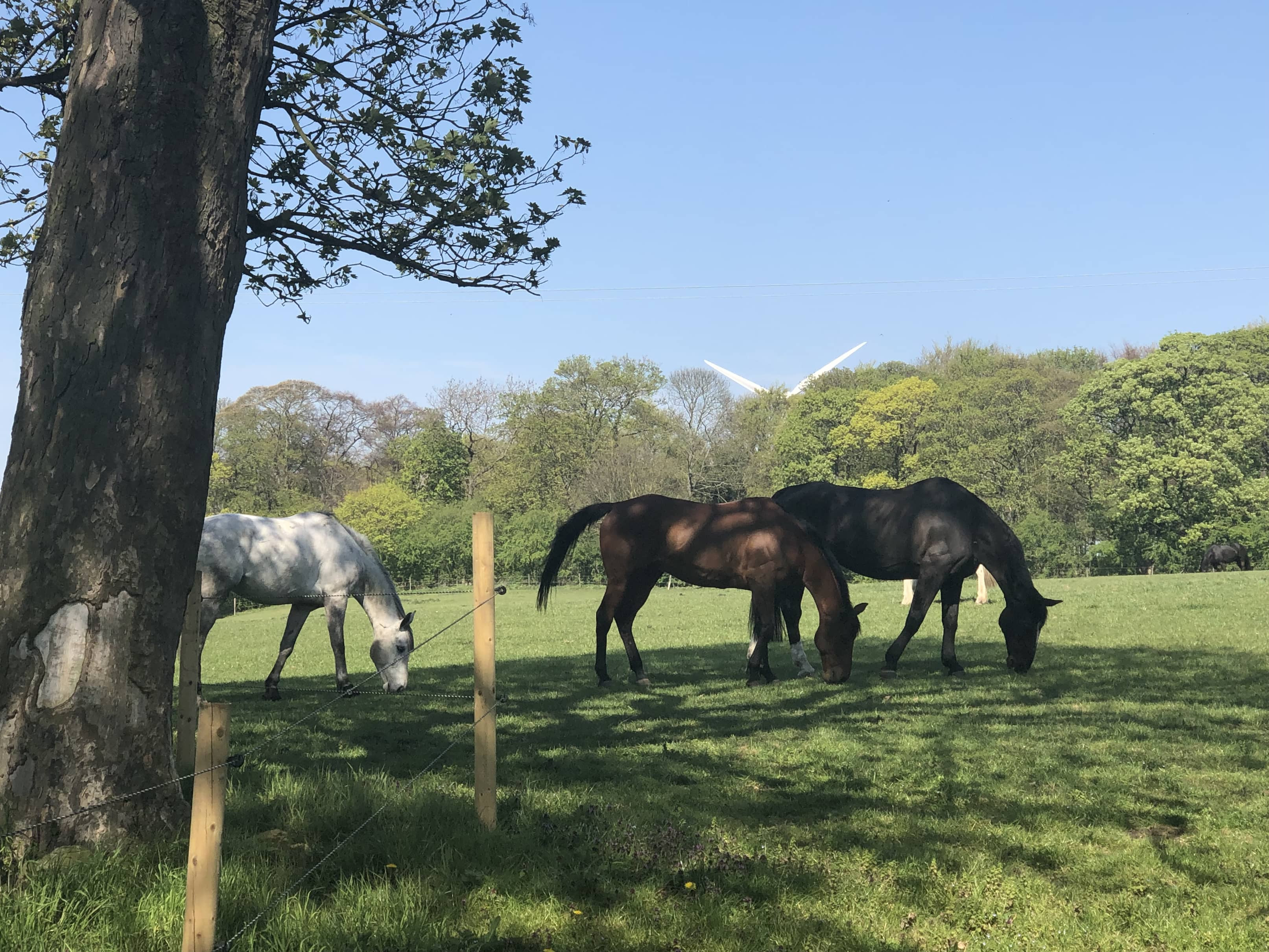Over the last 10 years resistance to horse wormers has become more widespread. We only have a limited number of chemical drugs we at our disposal for treating worms in horses, and with no new types of drugs on the horizon it is vital we protect the efficacy of the ones we have. In this article I want to look at how resistance happens and how our management of worms may actually accelerate it...
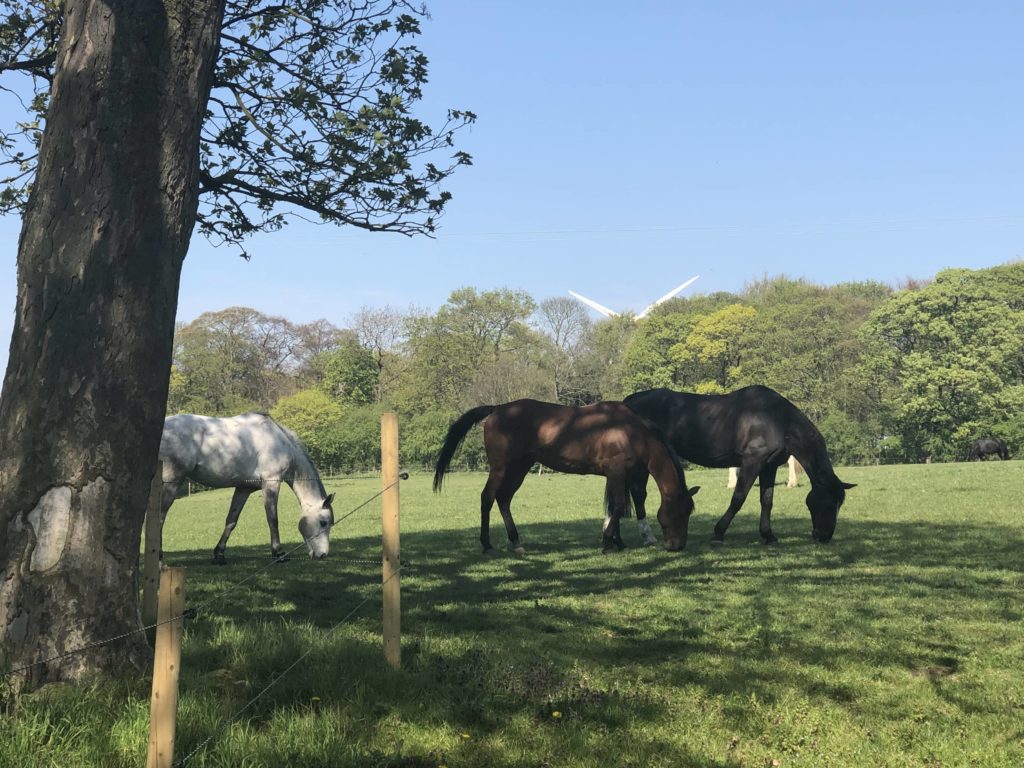
What is resistance? Resistance occurs when the product we use to treat the target worms is no longer effective. In order for a wormer to be licensed for use the company needs to prove it is at least 95% effective against the worms it is licensed (not all wormers target every type of worm). It starts when worms that are genetically advantaged to be immune to the wormer increase to the point that there are more resistant worms than non-resistant worms and the horse becomes infested with resistant worms that are not killed by the use of anthelmintics (wormers).
Resistance can only happen if the worms are exposed to the drug in the first place. The more we expose the worms to a certain drug, the faster resistance will develop.
How?
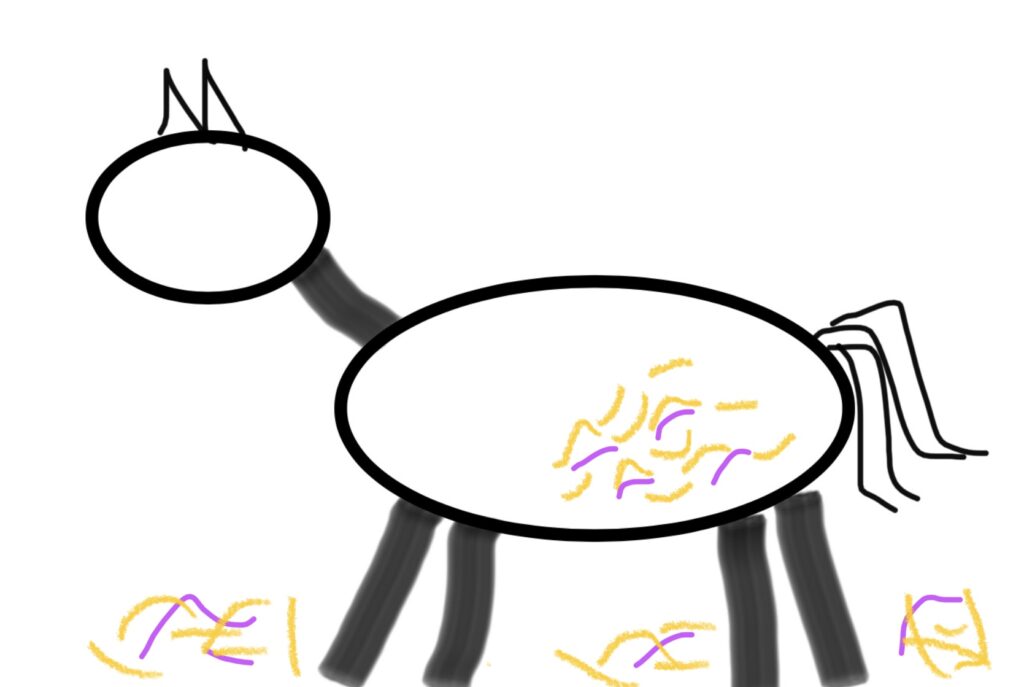
Try to ignore my terrible IT skills for a moment and imagine this is a horse. The orange lines are non-resistant worms. The purple lines are worms that are resistant. As you can see, the non-resistant worms outnumber the resistant worms both inside the horse and on the field (remember, use your imagination!)
Now imagine we give this horse a wormer that has no effect on the resistant worms in the horse...
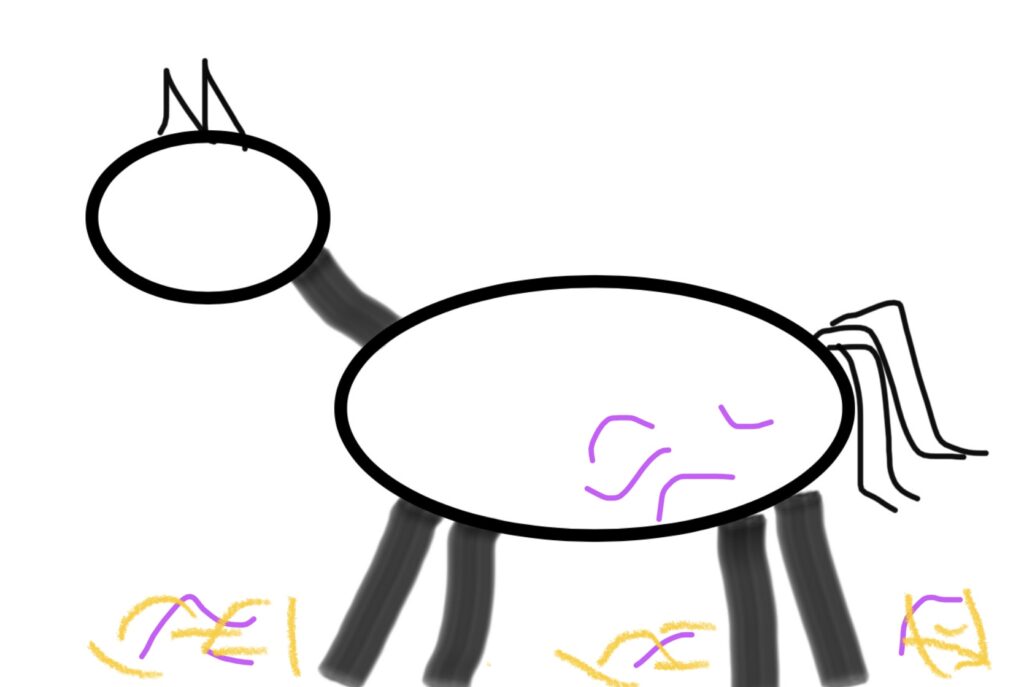
We kill off all the non-resistant worms leaving only the resistant worms (purple) inside the horse.
Note that at the moment we have had no effect on the ratio of non-resistant : resistant worms on the pasture. But this horse will now start pooping out eggs from the resistant worms - which will also likely be resistant. So over time the amount of resistant worms on the grazing also increases, and by default in every other horse that grazes that pasture.
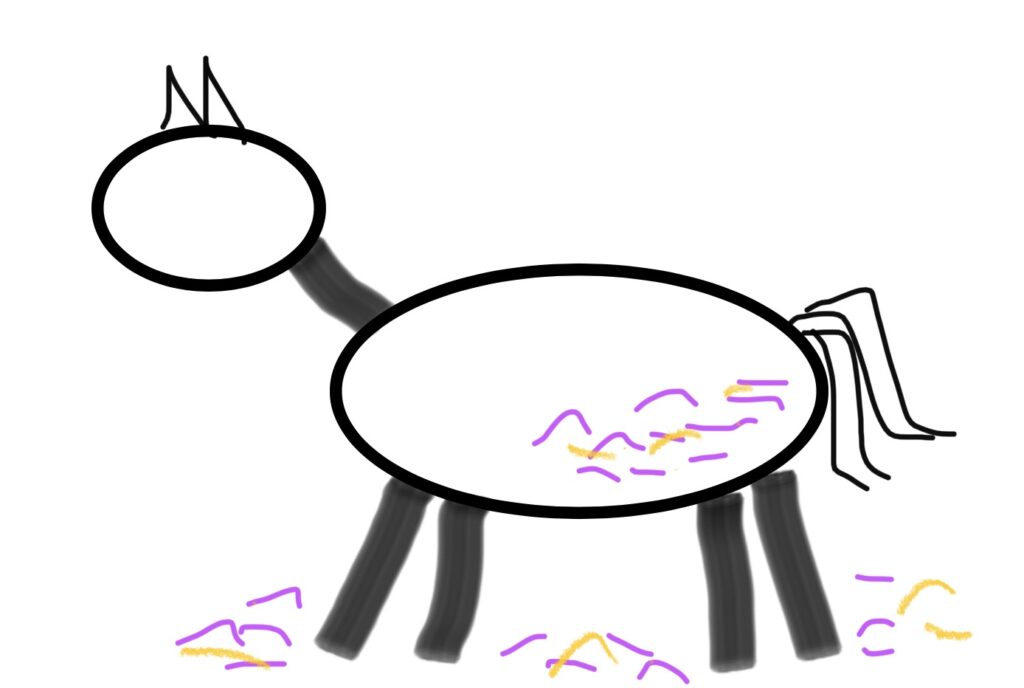
Until eventually over time, the number of resistant worms in the horse and on the pasture is significantly more than the non-resistant worms.
We can worm this horse over and over but those worms will not be affected.
In time the number of worms could build up to a significant enough level to cause disease, and even death with us having no effective way to treat them.
Sounds pretty scary right? Well, don't panic because resistance does not happen over night but it is coming and anything we can do to slow it down will benefit us and our horse's in the future. The alternative is we see many more deaths due to worms in horses of all ages but especially our youngsters. (How cute is baby Charlie?!)
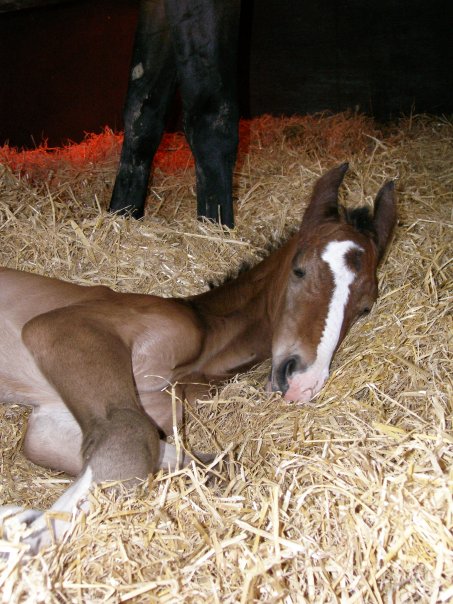
So how can we slow down resistance?
- Only use wormers when we really need to
- Regular worm egg counting and tapeworm testing to identify the horses that have worm burdens (see my other blog on this below)
- Consult your vet about which product to use - only they will know your unique situation
- Try to reduce the worm contamination as much as possible by good pasture management
- Test and treat all new horses on a yard
- Perform a second worm egg count 14 days after the treatment to ensure that the wormer has worked (if resistance is present the worm egg count will not go down)
- Avoid using wormers we know have resistance
- Don't always use the same wormer
A NOTE ON EQUEST PRAMOX
More recently, due to increased awareness of worms and the excellent management by owners, many horses are receiving negative worm egg counts throughout the year. Due to the fact that the worm egg count is not reliable for detecting tapeworms or encysted redworms many vets and SQPs (suitably qualified persons) have advocated a once yearly dose of EQUEST or EQUEST PRAMOX which are the only wormers effective against encysted redworm in horses.
EQUEST and EQUEST PRAMOX both contain active ingredient 'Moxidectin'.
We are now seeing resistance to moxidectin by encysted red worms in the UK. This could be a disaster if we don't take steps to reduce this.
So going forward, Ridings Equine Vets will no longer be routinely recommending that all horses are given an EQUEST or EQUEST PRAMOX in winter and will be basing the decision to worm on the individual horse risk factors. 90% of horses will not be at a high risk of red worm and we will likely advise not to treat but this decision will be made on an individual basis and take into consideration the horses age, clinical history, yard, worming plan, past worm egg count results, and pasture management.
My best advice is this: Talk to your vet about worming, don't just blanket treat your horse with something from the tack shop or you may end up with a resistant population of worms on your yard.
As always the Ridings team of Vets and SQPs are here to offer our support and advice!
Jenny x

